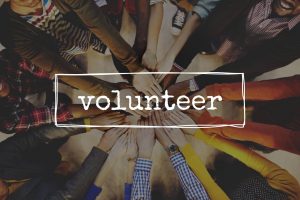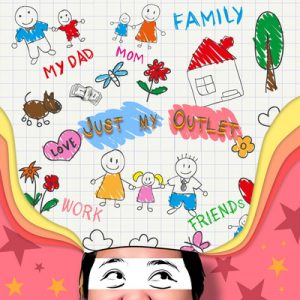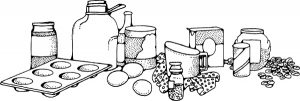
July 2021
Health & Wellness

Variants in the United States:
The Center for Disease Control is monitoring multiple variants; currently there are four notable variants in the United States:
B.1.1.7 (Alpha): This variant was first detected in the United States in December 2020. It was initially detected in the United Kingdom.
B.1.351 (Beta): This variant was first detected in the United States at the end of January 2021. It was initially detected in South Africa in December 2020.
P.1 (Gamma): This variant was first detected in the United States in January 2021. P.1 was initially identified in travelers from Brazil, who were tested during routine screening at an airport in Japan, in early January.
B.1.617.2 (Delta): This variant was first detected in the United States in March 2021. It was initially identified in India in December 2020.
These variants seem to spread more easily and quickly than other variants, which may lead to more cases of COVID-19. An increase in the number of cases will put more strain on healthcare resources, lead to more hospitalizations, and potentially more deaths.
So far, studies suggest that the current authorized vaccines work on the circulating variants. Scientists will continue to study these and other variants.
How common are these variants?
CDC tracks multiple variants circulating in the United States and provides an estimate of how common they are in the nation and at the regional level. This data can change over time as more information is available. Based on current data, variant B.1.1.7 is the most common variant across the country.
What is the CDC is doing to learn more?
Scientists are studying these variants to learn more about them and to quickly detect new variants. They want to understand whether the current and new variants
- Spread more easily from person-to-person
- Cause milder or more severe disease in people
- Are detected by currently available viral tests
- Respond to medicines currently being used to treat COVID-19
- Change the effectiveness of COVID-19 vaccines
Protecting yourself from COVID-19:
COVID-19 continues to spread in the United States and variants are circulating. Take steps to protect yourself from the virus.
- Get a COVID-19 vaccine when it is available to you.
- Wear a mask that covers your nose and mouth to help protect yourself and others.
- Stay 6 feet apart from others who don’t live with you.
- Avoid crowds and poorly ventilated indoor spaces.
- Wash your hands often with soap and water. Use hand sanitizer if soap and water aren’t available.
Watch for symptoms…
People with COVID-19 have had a wide range of symptoms reported – ranging from mild symptoms to severe illness. Symptoms may appear 2-14 days after exposure to the virus. Anyone can have mild to severe symptoms. People with these symptoms may possibly have COVID-19:
- Fever or chills
- Cough
- Shortness of breath or difficulty breathing
- Fatigue
- Muscle or body aches
- Headache
- New loss of taste or smell
- Sore throat
- Congestion or runny nose
- Nausea or vomiting
- Diarrhea
This list does not include all possible symptoms. CDC will continue to update this list as we learn more about COVID-19. Older adults and people who have severe underlying medical conditions, like heart or lung disease or diabetes, seem to be at higher risk for developing more serious complications from COVID-19 illness.
For more information, visit the CDC website at www.cdc.gov
Arkansas, Mississippi & Missouri are hit hard by Delta Variant
As the Delta variant of Covid-19 pushes up new infection case counts across the country, public health experts are urging people to get vaccinated — not just for themselves, but for everyone around them. Experts have noted clear links between unvaccinated populations and higher incidence of Covid-19 cases, particularly of the highly contagious Delta variant.
About 35% of Arkansas’ population is fully vaccinated, according to CDC data, and new daily case numbers have recently climbed back to more than a thousand a day, state health officials said. A surge is also alarming officials in Mississippi, where only a third of the population is fully vaccinated. In Missouri, only about 40% of the population is fully vaccinated, and doctors there say the number of hospital rooms and available equipment is running low, especially as more young people become ill. The state’s health department estimates more than 70% of the virus circulating in the state is the Delta variant.

Building Community Consciousness
People who feel connected to a community are generally healthier and happier. That is because having strong support systems makes it easier to move through life’s challenging moments. Feeling a sense of belonging is an integral component of wellbeing.
Communities are typically comprised of people with shared interests and values. Most likely, your community includes your family, neighbors, and a few others you interact with frequently. As you consider your own community, ask yourself this question: How connected are you?
One study conducted by the Pew Research Center found that only about 30% of Americans know all or most of their neighbors, and a similar study found that more than half of residents living in Toronto, Canada only know a few of their neighbors.
Community consciousness, which is defined as a community’s “level of awareness of its current social, economic, and environmental situations,” requires a willingness to branch out and become more aware of what is happening beyond your own family and inner circle. It requires acknowledging and accepting the diversity among members of your community, and it involves actively seeking common ground.
One way to expand your community consciousness is through volunteerism.  Volunteering enables you to connect more deeply with others in your community. Having conversations with people outside your usual networks can expand your perspectives and give you more insight into the challenges that others face.
Volunteering enables you to connect more deeply with others in your community. Having conversations with people outside your usual networks can expand your perspectives and give you more insight into the challenges that others face.
What will you do to build community consciousness?
In connected communities, everyone benefits. The more connected you feel, the more support you can give to others—and the more support you will receive in return.
How to ask for help
Asking for help seems to come naturally for some, but for others, it is anything but easy. The need to feel independent is a highly valued virtue, especially in professional settings.
Even so, trying to do it all alone seldom produces the best outcomes. When you are chronically exhausted and overwhelmed, you are unable to deliver your best work, so knowing how to ask for help is vital.
To ask for help, you first need to know how to recognize when you need it. This may require you to pay more attention to how you respond in certain situations. How do you respond to stress? How do you know when you have reached your limit? The answers can help you understand when you need help.
Getting comfortable with asking for help can take time, but it can make your life a whole lot easier.
Here are some tips for when you need to ask for help:
- Recognize when you need help Know your limits and manage your energy wisely. When it comes to asking for help, the earlier the better.
- Be clear about what you need When you do ask for help, explain exactly how the other person can help you. What specifically do you need help with?
- Ask the right person Seek help from someone who possesses the specific skills needed for the task at hand. Otherwise, you might end up further behind.
- Be helpful in return Extend help to others when you see them struggling. Just remember to always get permission first. Your help may not be as needed or wanted as you think it is. Jumping in to “fix” other people’s problems for them without their permission can backfire.


Strawberry Banana N’Ice Cream

INGREDIENTS
• 3 bananas, cut into chunks and frozen
• 12-ounce bag of frozen strawberries, about 2 ¼ cups
• 1 teaspoon Vanilla
• ½ cup unsweetened almond, cashew or coconut milk (plus more as needed to achieve desired consistency)
• 4 scoops Vital Proteins Collagen Peptides (optional ingredient – omit for vegan-friendly)

INSTRUCTIONS
1. Place all ingredients in high-powered blender or bowl of a food processor. Blend/process until smooth, stopping to scrape down the sides and adding additional milk as needed.
2. Serve immediately

Total Time: Prep: 10 min. Cook: 10 min. Servings: 6
